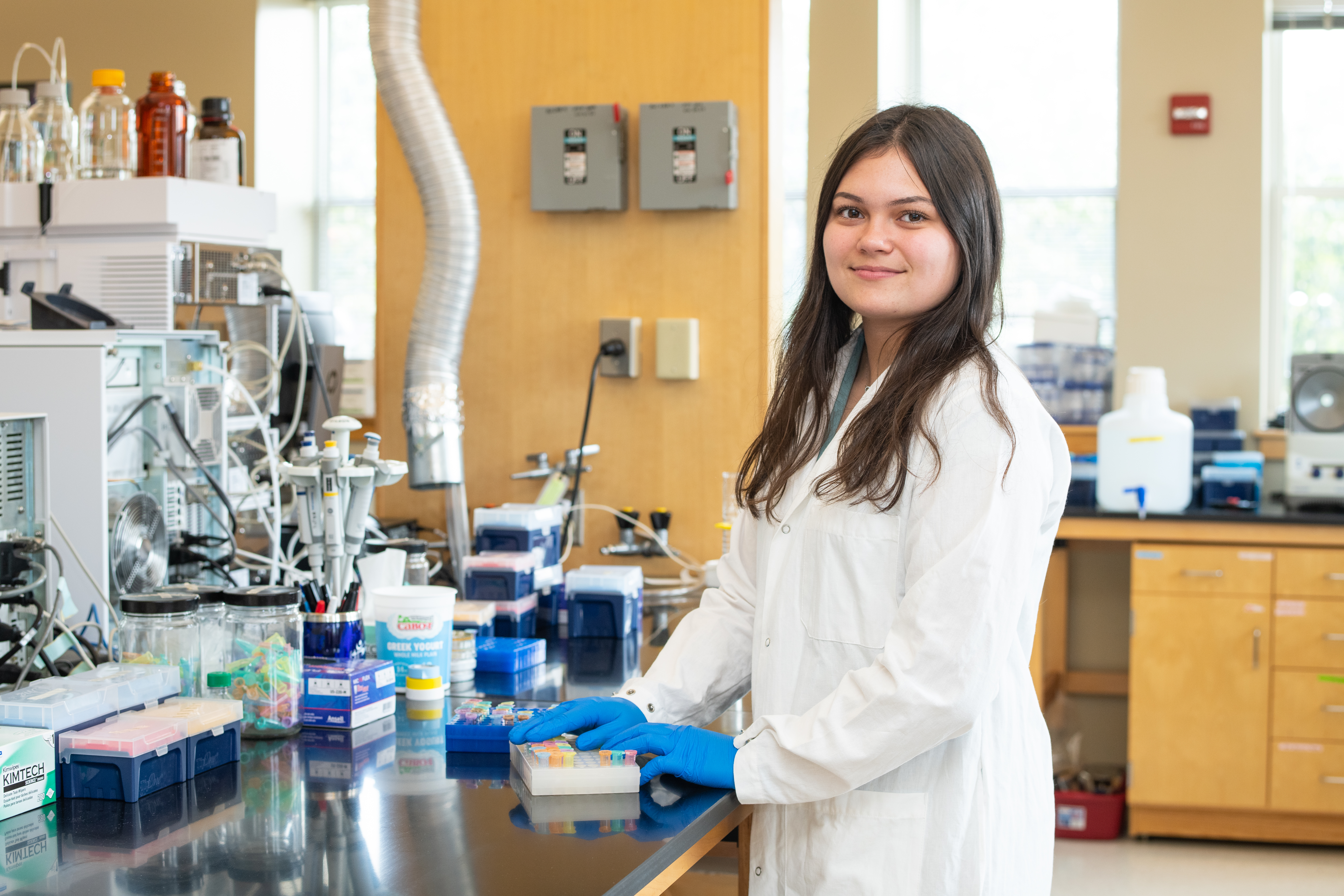
BIO-SENS is a collaborative multi-state project researching the development of biosensors to advance biotechnology and biomanufacturing.
Two-year and four-year undergraduate students are invited to apply for a 10-week paid Academic Research Technology Scholars (ARTS) summer internship. Interns serve as participant researchers in the labs of experienced faculty at Auburn University, the University of New England, the University of New Hampshire, or the University of Wyoming.
You must be a USA citizen or permanent resident to qualify for this internship.
Interns will receive a $7,000 summer stipend. For those needing housing, paid room and board up to $3,500 will be provided at the host institution.
Deadline to Apply: February 28, 2025.
BIO-SENS Research Objectives
The overarching goal of the BIO-SENS project is the development of “universal” biotechnology sensing platforms to enable the use of advanced manufacturing principles in biomanufacturing. A geographically diverse research team works to address the need for the on-demand design of biosensors for continuous monitoring under varying conditions on-site throughout the biomanufacturing process. BIO-SENS will develop engineering principles to guide on-demand biosensor design covering the full assortment of sensor components: the recognition elements that bind analytes; the stimuli-responsive linkers that amplify the binding signal; the form factor of the sensor; and the final transduction of the signal.
Academic Research Technology Scholar (ARTS) Program
The ARTS internship program is a BIO-SENS workforce development project.
Accepted ARTS interns' benefits include:
- 10-week summer research experience at one of the participating labs
- $7,000 stipend for full-time participation
- room and board at the host university up to $3,500.
If you have any questions about this program or the application, please email Valerie.Leavitt@unh.edu
BIO-SENS is funded by a National Science Foundation EPSCoR Award (#2119237).
Auburn University | Auburn, Alabama
Description: The research focus of the Pantazes Lab in the Chemical Engineering Department at Auburn University is on the development of computational methods for designing binding proteins. Two research position available to (re)design proteins that bind insulin and interleukin-6.
Minimum Requirements: Knowledge of biochemistry and programming demonstrated by grade of C or better in any biochemistry and programming coursework.
University of New England | Portland, Maine
Description: The research focus of the Balog Lab within the Portland Laboratory for Biotechnology and Health Sciences at the University of New England is on the development and characterization of engineered proteins for biomaterials and biotechnology. Up to two research positions in the areas of molecular biology and protein science are available.
Minimum Requirements: Knowledge of chemistry and mathematics demonstrated by a grade of B or better in general chemistry and calculus coursework.
University of New Hampshire | Durham, New Hampshire
Description: The research focus of Dr. Halpern's SEEDS Lab in the Department of Chemical Engineering and Bioengineering Department at University of New Hampshire is on the measurement of surface changes using electrochemistry. One to two research positions to monitor surface binding proteins with electrochemistry are available.
Minimum Requirements: Grade B or better in general chemistry and calculus. AP credit also accepted.
University of Wyoming | Laramie, Wyoming
Description: The Hill Lab in the Department of Chemistry at the University of Wyoming focuses on the development and application of electrochemical microscopy techniques capable of resolving chemical behavior at the nanoscale. Two research positions available focused on studying the synthesis, functionalization, and chemical behavior of individual nanoparticles using electrochemical microscopy.
Minimum Requirements: One year of general chemistry with a grade of B or better.
Required Application Materials
Application, requirements (in a doc, docx or pdf format):
- a combined pdf of all college transcripts (unofficial transcripts are accepted),
- your resume
- a personal statement detailing your interest in the project (200 words maximum) clearly labeled with your name
- a statement about your career goals (200 works maximum) clearly labeled with your name and
- the name and email of the person providing a letter of recommendation.
A letter of recommendation should ideally be from an instructor who knows you as as student and/or researcher and emailed directly from the recommender to Valerie.Leavitt@unh.edu
To apply for more than one internship, you must submit individual applications for each one.
Applications will be considered incomplete without these documents and will not be reviewed.
